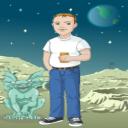Yahoo Answers is shutting down on May 4th, 2021 (Eastern Time) and beginning April 20th, 2021 (Eastern Time) the Yahoo Answers website will be in read-only mode. There will be no changes to other Yahoo properties or services, or your Yahoo account. You can find more information about the Yahoo Answers shutdown and how to download your data on this help page.
Trending News
What if we misunderstand Red-Shift?
This is just a what-if.. but what IF redshift is NOT a product of space-time expansion.. but rather that the EM wavelengths simply do NOT travel at the same amplitude and frequency indefinitely.. and that they attenuate over vast distances and times to a lower energy state- they redshift as a function of travel distance and time spans?
Ok, so IF this is the case- how can we find out if it is true, if none of our test light can be measured over these distances and time spans? And if we cannot verify this, then how can we discount this?
But to the more important question: IF this is true, what would that mean for Universal-expansion, Dark Energy, The Universal Constant, and all other implications based solely on this "observation" that distant light is undergoing a Doppler Effect? Would it turn everything on its head? Would gravity and the Big Crunch be a possibility again? Would our map of the distant universe be of the same timescale and scope? Would the Big Bang date be affected? Would the Big Bang even be discredited??
Funny how such a small change in the fundamentals can have such huge implications. So tell me... What IF we misunderstand Red-Shift- and how would we be able to be certain what we know now is in fact reality?
No one yet has addressed the actual question. I already know that the redshift is indeed caused by expansion, this question was "how would the Universe be different ->IF<- tired light was true?"
.. like would its age change, based on new interpretations of data? Which big picture fates of the Late Universe would have to be thrown out? What other interesting details would be completely different if this were the case? Things like that.
(reading the original post that didnt seem too clear- sry)
13 Answers
- SciencenutLv 78 years agoFavorite Answer
This is a very interesting question, but it is not new or original, I am sorry to say. The first thing that you need to understand is that the cosmological red shift is no longer thought to be due to a Doppler effect. The various galaxies are thought to be largely "at rest" with respect to one another, although local gravitational effects can blur this overall picture. The cosmological redshift is currently instead felt to be due to the expansion of space itself over time, thus stretching the wavelengths to redder and redder levels. Actually, to me, this is hardly any different from the tired light hypothesis, since the light itself is in fact (supposedly) being reddened by the immense distances and times involved. How is this stretching effect different from tired light? Yet all knowledgeable Cosmologists loudly pou-pou the tired light theory while putting forth their own light degradation (stretching due to expansion) theory, (which, again, is really hardly any different in my small mind.) This in turn is circuitous reasoning, in my mind: Is the Universe expanding? Yes. How do we know? Because light from distant galaxies is redshifted. And why is the light redshifted? Because the Universe is expanding, of course. But what if the light is being degraded by some other mechanism, unknown to us? We just don't know. But our lack of creative imagination to explain it in any other way might be the only reason that we stick to the big bang theory.
The fact is, the big bang does indeed represent a fairly coherent explanation for everything that we currently observe about the Universe, but so did the Ptolemaic system of the planets successfully explain the movements of the Solar System at the time it was put forth. But as more data kept coming in, they had to keep adding more and more epicycles to make everything fit together. Then finally Copernicus came along with a radical new idea, that eventually prevailed. I sometimes long for a new Copernicus to come along and explain everything much more eloquently than our current Cosmology theory. You may say I'm a dreamer, but I'm not the only one......
- ?Lv 68 years ago
"Tired light" is just an alternative effort to explanation the redshift. It is far from being close to support the static/Einstein Universe. The close universe model might get away with dark energy but it will still need to explain how cosmological constant of zero is kept stable. How about the explanation for the CMBR. Also, if the universe was not created some finite time ago/Big Bang, the stars would all have run out of fuel (Hydrogen) by now. Even if we misunderstand Red-Shift it is far from being able to disprove the expanding universe/Big Bang model.
Source(s): http://en.wikipedia.org/wiki/Static_universe - ?Lv 78 years ago
If tired light was correct then we would need to measure the effect in the lab. Once that's done we can correct the observed redshifts for tiring light and determine the component due to velocity, and then we'd get a new idea of how the galaxies are moving relative to each other.
If measurement of tired light in the lab is NOT possible, we would be left really struggling to measure the speeds of distant galaxies and we'd be back in the dark.
- ?Lv 68 years ago
You are right to question the scientific consensus in this. The universe isn't actually expanding at all. The idea that it does comes from misinterpreting galactic redshifts as a doppler effect when they are actually a scattering effect. The galaxies are not generally receding from each other at all. Their light simply loses energy through it's interaction with the intergalactic medium... http://www.newtonphysics.on.ca/hubble/index.html
If the universe was expanding quasars would show time dilation effects but they don't:
http://phys.org/news190027752.html
This documentary may enlighten you:
- How do you think about the answers? You can sign in to vote the answer.
- 8 years ago
Ironically there is a program called Redshift for Linux that makes the screen more red at night hahs
I looked into it and Windows users can use f.lux it really is an amazing program
They even have a frequently asked questions page to help use it
http://stereopsis.com/flux/faq.html
Thanks for posting about redshift because this f.lux program is sweet
- supastremphLv 68 years ago
Good question. Unlike what weird pedantics above may claim, this is how science works. As the first answerer suggests, if you have a general loss of energy, most likely from collision, you would associate that with blur, which is not empirically observed, which discounts this idea. This is a big deal and I think it would be presumptuous to think that we have it nailed down just so that our theories are correct. But, people are apt to slam you down on this one because most are incapable of respecting independent thought, that, and people are assholes.
Source(s): "tired light" - Bob D1Lv 78 years ago
("What if we misunderstand Red-Shift?")
-------------------------------
I'm not an astronomer or cosmologist or anything, but here's what I think:
Your tired light hypothesis is incorrect for a number of different reasons, some of which have already been stated here. If red-shift is due to photons of light losing energy as they travel away from us through space, how is it that these same photons appear blue-shifted as they travel towards us? Do these photons just somehow pick up and gain energy from somewhere? The same thing can be said for the red-shift / blue-shift effect created by a distant planet orbiting another object or star. As the planet approaches us in its orbit, we see it blue-shifted; as it recedes away from us in its orbit, it appears red-shifted. Photons of light get their energy from their own intrinsic oscillations, not from energy lost (or gained) from traveling great distances.
See: Doppler Shift -- UCLA -- Division of Astronomy & Astrophysic
http://www.astro.ucla.edu/~wright/doppler.htm
See: "Tired - Light" Hypothesis ... ScienceNow
http://news.sciencemag.org/sciencenow/2001/06/28-0...
See: 'New Tired light' and the CMB
http://lyndonashmore.com/CMB_and_Tired_Light.htm
Best regards
Source(s): self - ?Lv 78 years ago
Fine fine - now YOU propose an observation or experiment to test the hypothesis. If you want a paradigm shift you need evidence and experiment.
- Anonymous8 years ago
You should study the work that Ruggero Santilli has been obtaining measurements on.
See this link: http://www.santilli-foundation.org/docs/IRS-confir...
- DLMLv 78 years ago
You bring up an old hypothesis, "Tired light," which, was dismissed in the 1930s, resurrected in the 1950s and 1960s, and subsequently dismissed again.







